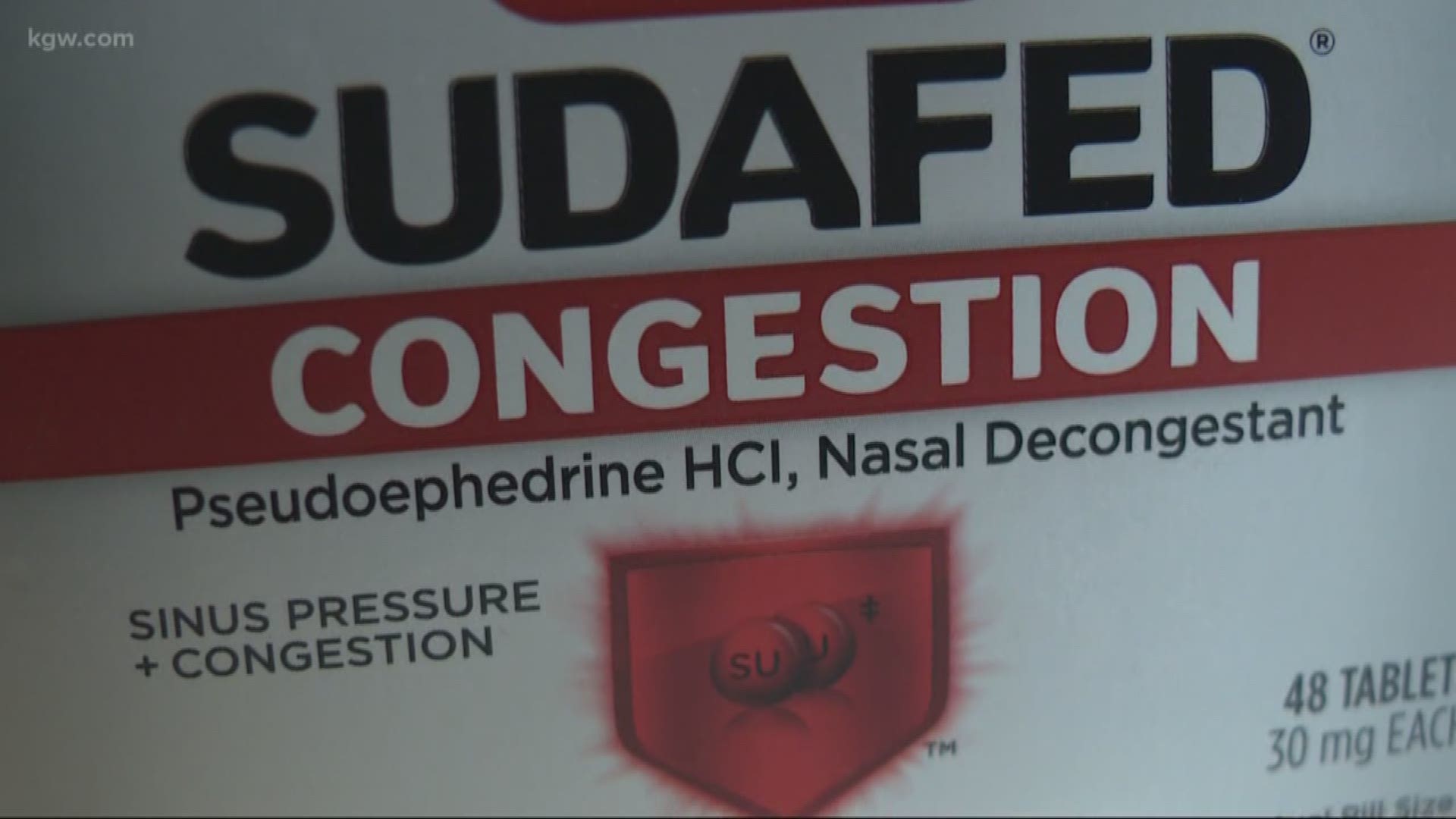(The video in this story is from early April, when the House passed the original bill.)
A bill that would have aligned Oregon with many other states that have eased access to pseudoephedrine cold medicines, such as Sudafed, was amended by the Senate and sent back to the House on Wednesday.
The original bill, House Bill 2303, passed the House on a 33-22 vote on April 11. The amended bill passed the Senate Wednesday on an 18-10 vote that crossed party lines, sending it back to the House.
The House will now vote on whether to concur with the amended bill. If the House does not vote to concur, the bill will go to a conference committee. If the House votes to concur, the amended bill would go to Gov. Kate Brown's desk.
The original bill would have repealed pseudoephedrine and ephedrine as a Class 3 controlled substances. It also called for the State Board of Pharmacy to adopt rules allowing pharmacists to dispense pseudoephedrine, with proper identifications and strict limits on amounts sold per month.
But the amended bill does not repeal pseudoephedrine cold medicines as a Class 3 controlled substance, which would, in essence, not allow pharmacists to prescribe the products because pharmacists are not allowed to stock controlled substances, according to Rep. Bill Post, one of the chief sponsors of the bill.
The law defining pseudoephedrine and ephedrine as Class 3 controlled substances, which went into effect in 2005, was implemented at the peak of bulk purchases of cold medicines, which were then used to make meth.
"We had an epidemic in 2005 and making it a prescription was a very good idea," Post said in April. But Post said it's time for a change.
The original bill was opposed by law enforcement organizations confident that criminals will bring back "smurfing," where a number of them purchase and stockpile the medicines to take meth.
At a previous public hearing on the original bill, citizens testified about the difficulty of getting cold medicines, especially if they had a high deductible insurance policy. It required a pricey visit to a doctor to get a prescription for a costly drug.
Others, one of them prone to allergies, testified that they were forced to take burdensome, regular trips out of state to purchase cold medicines.
If the original bill had been adopted, Oregon would have joined most other states — Washington is one — that use technology to better track dispensed medicines, including a real-time national database.
"What I want to assure people is 37 other states have this system that I'm trying to implement and it's working. Why should Oregon be different?" Post said in April.
Post was referrubg to is the NPLEx system. It tracks who buys the drug and limits how much they can buy per day and month.
Correction: This story said the original bill, House Bill 2303, was passed by the Senate and was headed to the governor's desk. An amended version was passed and the bill goes back to the House.

